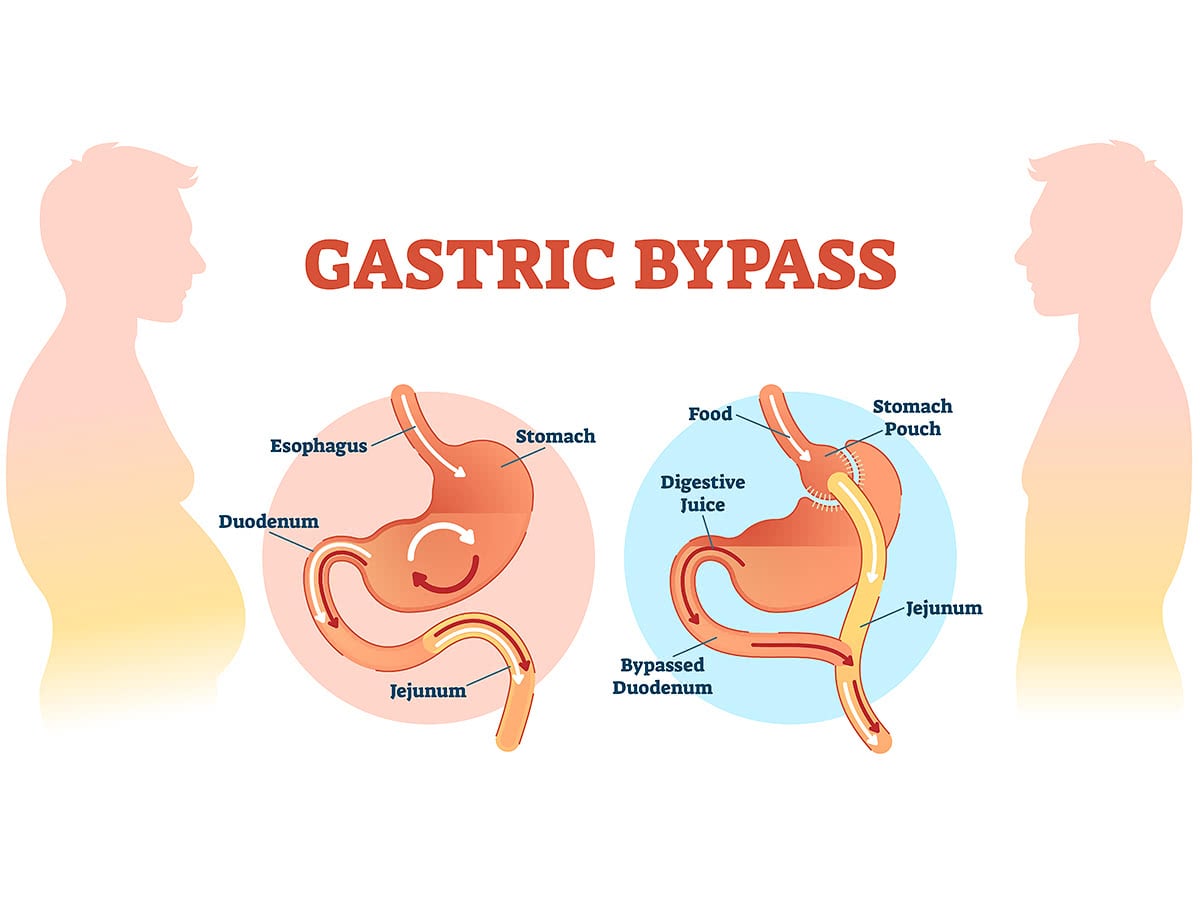Introduction
There are several slightly different ways of performing a gastric bypass. We perform the most commonly used two versions, referred to as a Roux-en-Y gastric bypass and Single loop mini-bypass.
Whilst the gastric bypass is a more complex operation than the sleeve gastrectomy or the gastric band, it can be performed with keyhole surgery.
Each of the operations has its strengths and weaknesses and what follows is an account of the gastric bypass.
Indications
Patients are considered candidates for surgery if they meet one of the following criteria:
- BMI higher than 40.
- BMI of 35-40 with complications of obesity or metabolic syndrome, namely: severe Diabetes Mellitus, severe sleep apnea, very bad joint disease…etc.
- Failed Sleeve Gastrectomy.
To qualify for the operation, the patient, in general, should have tried dieting and exercise and should show commitment to repeat the same postoperatively.
Preoperative Instructions
1 week before surgery
- Do not take aspirin, aspirin products or any type of blood thinner for seven days before your day of surgery. Examples include, but are not limited to, ibuprofen (Motrin, Advil, Aleve) and other cold medicines.
- If you take any medicines (prescription or "over-the-counter"), please check with your physician and/or anesthesiologist regarding whether you should take them on the day of your surgery.
- Starting 4 days before your surgery, as an infection control measure, wash your body from your nipple line to your thighs with an antimicrobial solution called Hibiclens (rinse thoroughly). You will repeat this cleansing every day until your surgery.
Day Before Surgery
- Stay on a clear liquid diet the day before your surgery. This includes water, coffee or tea without milk or cream, clear broth, and Jell-O.
- As an infection control measure, wash your body from your nipple line to your thighs with an antimicrobial solution called Hibiclens (rinse thoroughly). You will repeat this cleansing procedure the morning of surgery.
Night Before Surgery
- Have nothing to eat or drink after midnight on the day of your surgery, except a sip of water to take any medications you were instructed by the Anaesthesia Department to take on the day of surgery.
Procedure
The operation, usually performed laparoscopically, involves making five to six small incisions in the abdomen through which a small scope connected to a video camera and surgical tools are inserted. Then a small stomach pouch is created by disconnecting the upper part of the stomach from the rest of it. This small pouch restricts food intake. The jejunum is then joined to the stomach pouch permitting food to bypass the lower stomach, the duodenum and portion of small intestine reducing the chance of absorption of the contents.
Postoperative Instructions
When you wake up from surgery, you will either be in the recovery room or you will go there shortly. You may suffer from abdominal pain and this soreness will usually go away over the first few days.
Risks
All operations carry risks which must be weighed against the risks of the underlying problems with your weight and associated diseases. Risk will vary from person to person and must be thoroughly discussed with your surgeon before deciding to go ahead with the surgery.
- Chronic anemia due to Vitamin B12 deficiency may occur. This problem usually can be managed with Vitamin B12 pills or injections.
- Dumping syndrome" can occur as the result of rapid emptying of contents into the small intestine. This is triggered when more sugar or large amounts of food are consumed.





